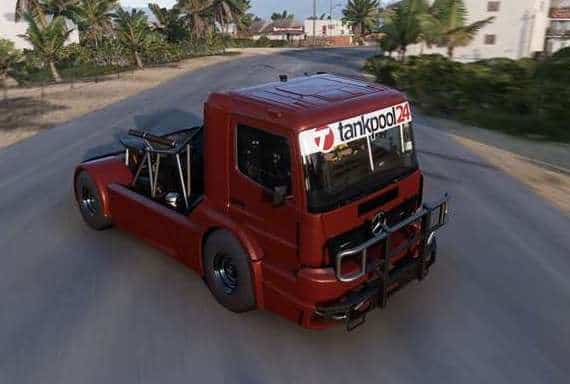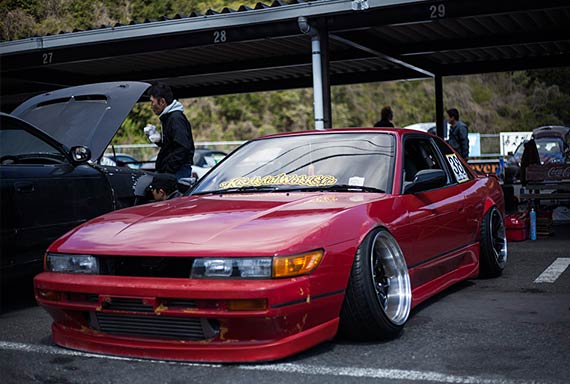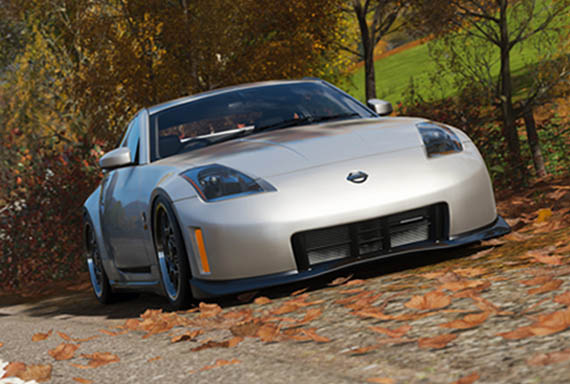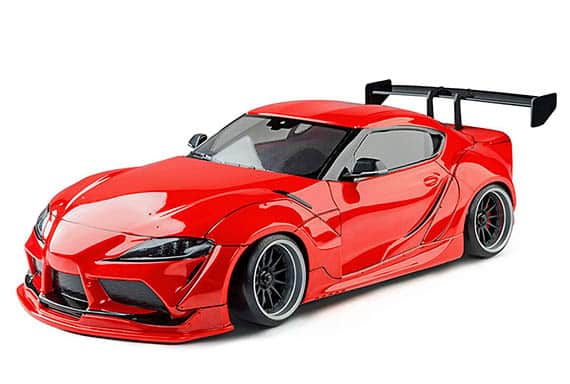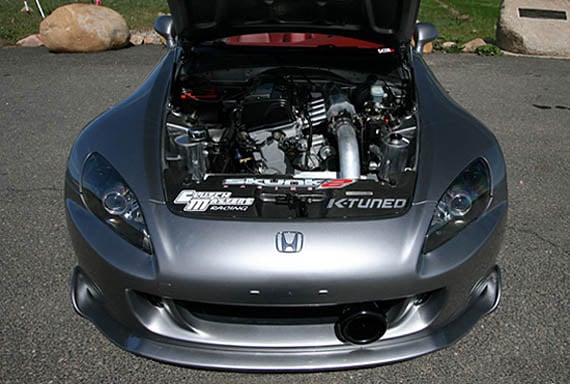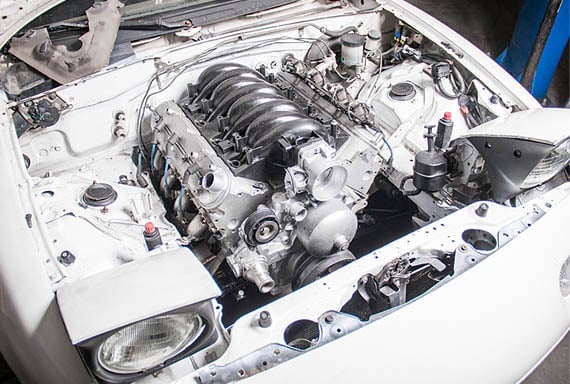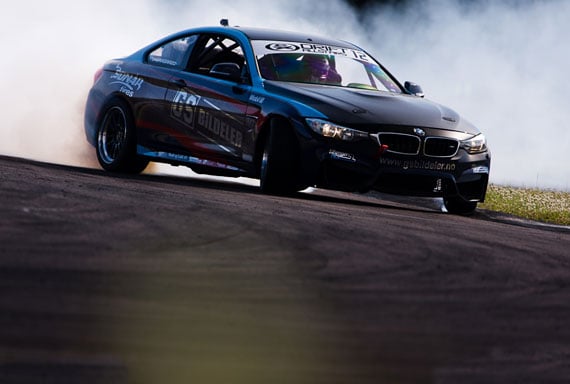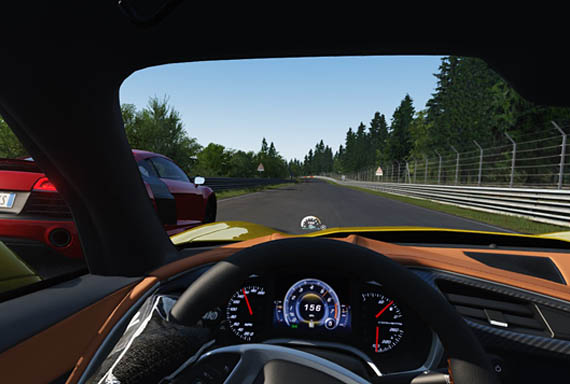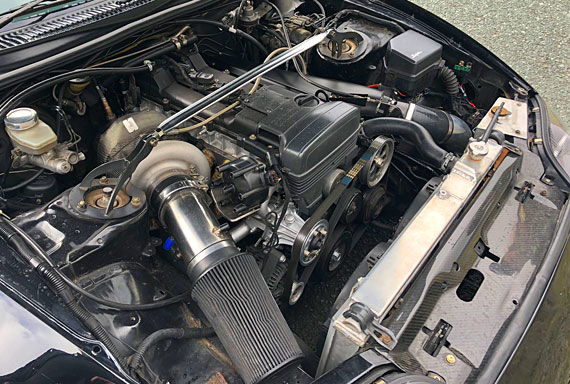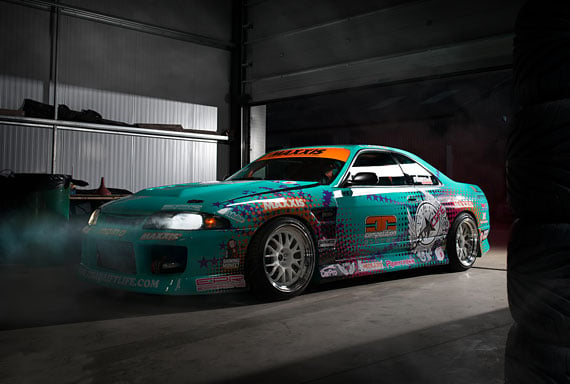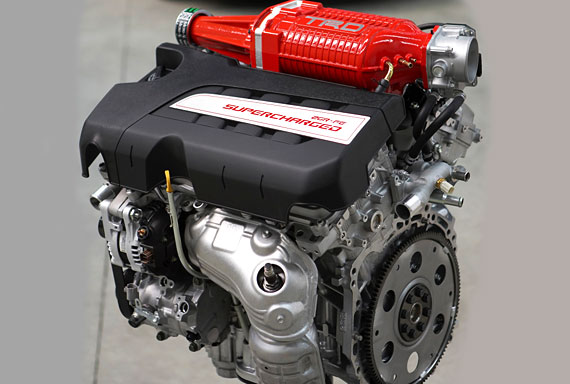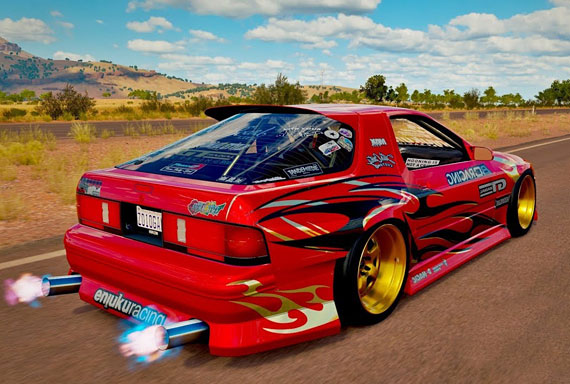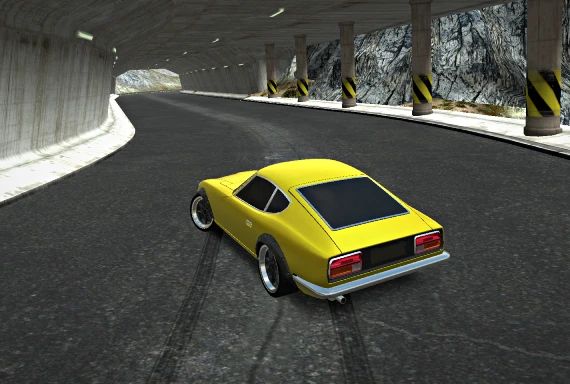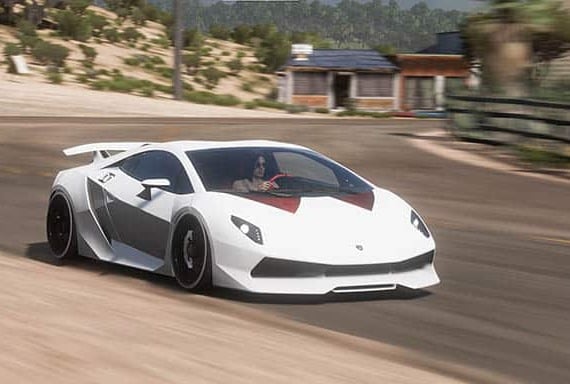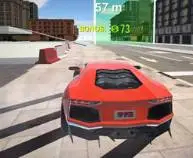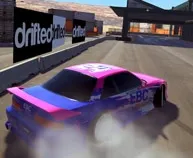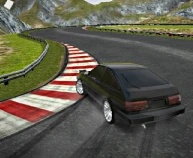Miata Vs BRZ – Which Is Best?
Both the Subaru BRZ and Mazda Miata arguably provide as much fun as you’ll get for the money for a modern sports car, but which one is better for your needs? We’re putting them head-to-head in this guide.
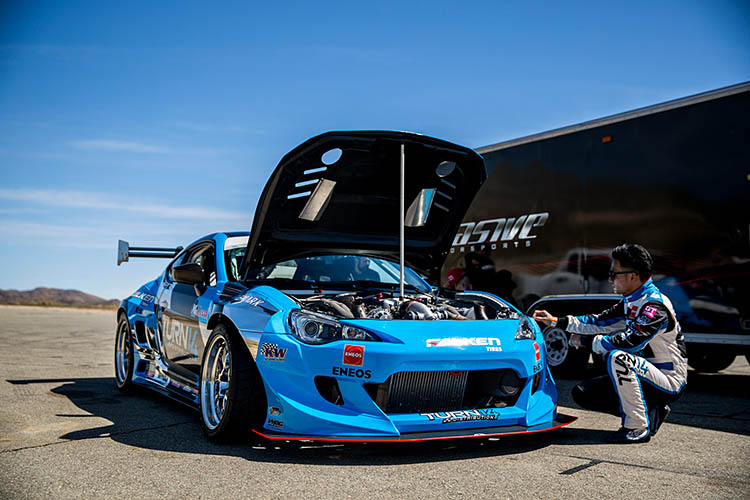
Introduction
Although both cars have their differences, there’s also a vast amount of similarities, which has left many enthusiasts stumped as to which car will be the ultimate choice for their needs.
Neither of these cars has been rammed with pointlessly excessive modern-day gadgets and luxury comforts. They’re both focused on being lightweight, affordable cars that are fully capable of everyday use while providing an ear-to-ear grin when you coincidentally happen to stumble across the canyon run.
Given that both cars come with similar price tags, which is likely to be irrelevant either way once you’ve added a few worthwhile optional extras, it’s understandable why the Subaru BRZ vs Mazda Miata argument has become increasingly common over the years.
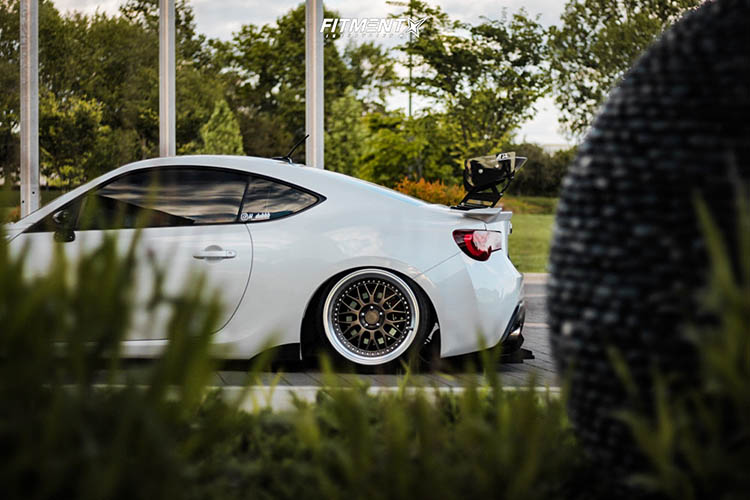
Neither is going to blow your mind if you’re looking for straight-line performance, but when it comes to the twisties, we challenge you to find any new cars that’ll provide a broader smile on your face for the money.
If you love to have a blast without concerns about breaking the law, and the bank, every time you opt to put your foot on the gas, then both cars are capable of providing the perfect solution.
They both make the most out of what they’ve got in the power department, and if the need for speed is a significant factor in the equation for you, then there are a variety of aftermarket upgrades to squeeze out the potential.
Sure, the Miata has one glaringly obvious bonus – the ability to provide the perfect solution to reasonable top-down fly-in-the-mouth motoring enjoyment, and is likely to be the closest you’ll get to a road-legal go-kart right out of the showroom.
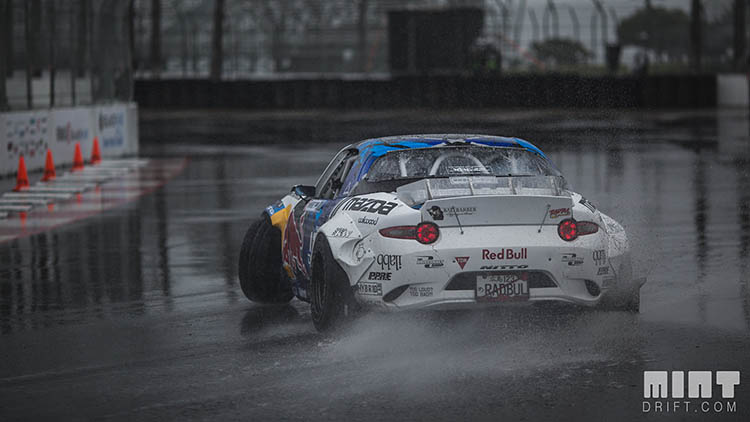
But, for those of you that live in climates where top-down fun isn’t going to provide the same all-year-round appeal, is it that important?
After all, the Miata loses out to the BRZ when it comes to interior and cargo space, making it far less tempting for those looking for an ideal all-rounder for your everyday needs.
Both of these cars go by various guises. Some of you will know the BRZ as the Toyobaru (Toyota) GT86, or maybe the Scion FR-S, where much of the same will apply.
For those in Europe, you’re probably more familiar with the name ‘MX5’ rather than Miata; it’s all much of a muchness throughout the guide.
Both cars feature naturally-aspirated, two-liter, four-cylinder engines under the hood. Combined with their rear-wheel-drive layout and six-speed manual options (with auto also available), it’s easy to see why they so frequently become familiar contenders.
But, which one is going to be the ideal car for your needs? It’s time to put them head-to-head.
Mazda Miata vs Subaru BRZ – Head-to-Head
Given that both cars will both come in at under $35,000, they’re way ahead of any other options available within this price bracket on the current market for those buying them brand new.
If you’re looking to buy used, there are certainly some real bargains out there. The BRZ initially launched in 2012, and the Miata has been around since 2016, and both are now extremely affordable.
Miata vs BRZ – Engines
Both cars feature 2.0L 4-cylinder engine options, with the modern-day Mazda having the SKYACTIV-G (PE-VPS) DOHC engine with 155-181 hp and up to 151 lb/ft torque.
With the BRZ, you’ll get the 4-cylinder (4U-GSE/FA20 H4) Boxer, with 197-205 hp and up to 156 lb/ft of torque.
There’s also a lesser-powered 129 hp 1.5-liter SkyActiv-G (P5-VPS) alternative available for the ND Miata, which, if we’re honest, wouldn’t be quite so tempting!
When it comes to outright power, Subaru’s BRZ is the clear winner.
Miata vs BRZ – Weight
With both cars on the scales, the BRZ weighs 1,190-1,270 kg (2,624-2,800 lbs), depending on the various options included.
The Miata comes in between 961-1058 kg (2,119-2332lb). However, the lighter end of the scale is for the lesser-powered 1.5L variant, and the upper end of the scale is for the automatic transmission.
If you’re opting for the typical 6-speed manual 2.0L model, you can expect the weight to be around 1,058 kg (2,332 lb).
Head-to-head, the Mazda Miata takes the win here.
Miata vs BRZ – Fuel Economy
We wouldn’t be buying either of these based on their fuel economy, and you’re likely to see different figures from different sources.
The typical consensus is that the Miata would typically provide around 29 mpg, where 24 mpg is more likely from the BRZ.
Although the Miata takes the win here, we’d highly recommend it isn’t the deciding factor.
Miata vs BRZ – Cargo Space
We’ll touch on this subject more in our ‘Daily Driver’ section, which we’ll be covering shortly, but the cargo space, or lack thereof, in the Miata is likely to be a real consideration for many potential owners.
While the Miata provides just 4.5 cu ft of cargo storage, the clear winner with over double the capacity goes to the BRZ, featuring 10.5 cu ft of volume – more than double that of the Miata.
Miata vs BRZ – Interior
When it comes to both the quality of materials features, the RF is typically the preferred choice.
The Miata has more of a quality, refined feel to it, where the BRZ is cheaper-looking and has a habit of becoming rattly.
With the BRZ, the interior materials have more of a 90’s-type vibe, rather than the premium modern-day comforts that most would expect when buying a new car. While it’s not terrible, it may be worth considering.
With that said, most drivers prefer the space and feel of the BRZ seats, particularly in the Limited package, which provides a compliant and comfortable Alcantara upgrade.
For many, the Miata interior is going to feel too cramped, particularly for those of you that are taller than 6 ft, where everything feels a little tight, and the seats often feel more like what you’d expect from an economy car than a roadster. Thankfully, aftermarket Miata seats provide the perfect solution to these issues.
With that said, the Miata has the option to provide all the headroom in the world on fair-weather days, but the BRZ has rear seats, even if they’re somewhat unusable, whatever the weather.
Overall, suppose you can deal with the cheaper feel of the BRZ interior. In that case, we feel it provides more positives, especially for the taller enthusiasts among us that may need to fit some suitably small friends or family in the rear seats.
When it comes to the interior, they both have positives. The Miata’s roof-down option will be a clear winner for some, despite the lack of maneuverability, which won’t be such an issue for those wanting weekend blasts.
Miata vs BRZ – Looks and Design
We believe that beauty is in the eye of the beholder, and for us, neither are bad looking cars by any stretch of the imagination.
In some ways, we feel that the Miata ND design perhaps looks better in stock form, where the BRZ is just crying out for some styling mods and wider wheels.
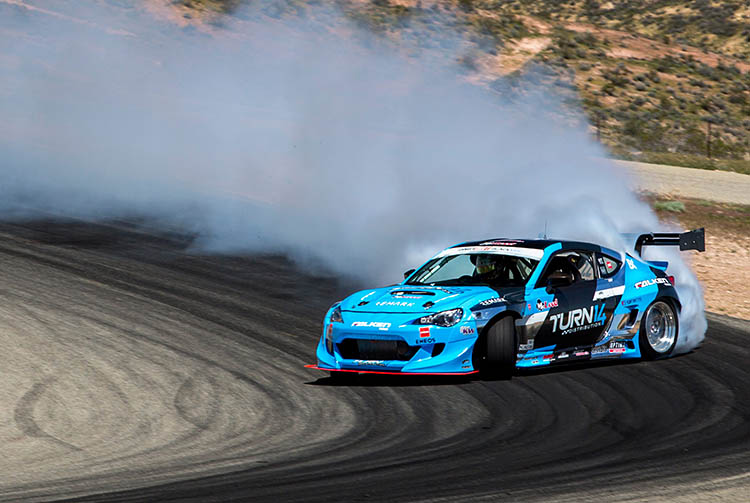
However, once modified, we feel that the BRZ is capable of being transformed into one of the best looking cars of all time.
With that said, we’ve seen some fantastic looking ND’s, and they certainly feature a more aggressive appearance than some of the previous-generation Miata’s, which awkwardly earned it the ‘hairdresser’ reputation. (Sorry, Miata owners, we’re sure you knew it was coming!)
Overall, given the potential they both have in store, we feel the BRZ provides the most potential in the looks department.
Miata vs BRZ – Optional Extras
Whether you’ve got some extra cash to splash, or you’re looking for the best model on the used market, there are several choices when it comes to factory upgrades from both cars.
Mazda has the ‘Club’ package for the ND Miata, which features BBS rims, Bilstein shocks, and Brembo brakes. The total price for these upgrades? $3,400.
Subaru, on the other hand, offers Brembo four-piston caliper and rotor upgrades, aluminum wheels, and SACHS performance shocks with their ‘Performance’ package, at a far more reasonable $1,200.
When choosing a winner, the BRZ’s package is far more reasonable, but given that the Miata provides BBS rims and Bilstein shocks, we’re not surprised it comes with a heftier price tag.
Miata vs BRZ – Performance & Tuning
You really can’t go wrong with either of these cars in terms of performance once you accept what these cars set out to do.
It can be challenging for some enthusiasts to get their head around the concept of not having heaps of power on tap, which is why so many were left frustrated by the lack of forced induction on the BRZ, despite the WRX featuring a turbocharger.
When it comes to putting them side-by-side in a 0-60 challenge, the Miata will get there in 5.8 seconds with its 7,500 rpm redline, and the BRZ is five-tenths of a second slower.
We wouldn’t consider this to be a deal-breaker, especially when you bring mods into the equation.
But, once you get behind the wheel and take yourself down to a twisty canyon run, you’ll get to experience just how much fun lower-powered motoring can be in either car, without such a concerning fear of losing your license in the process.
The lack of power makes you appreciate what the suspension and the weight distribution of these cars provide. They allow for massive amounts of satisfaction when downshifting and throwing them into the corners before smashing your foot to the metal out of them.
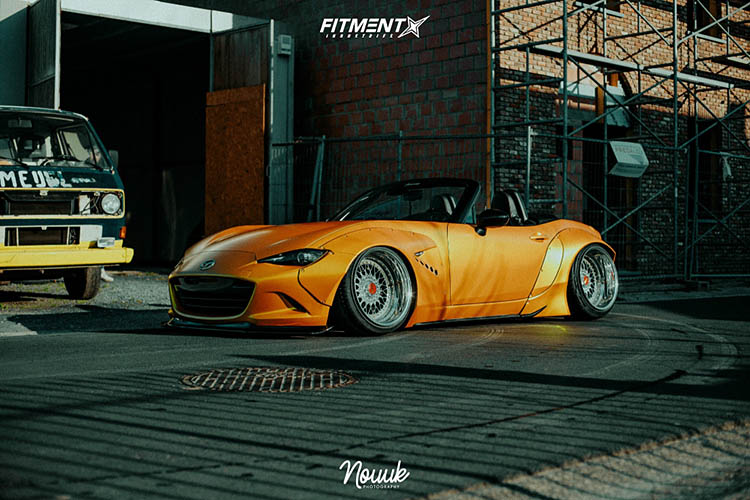
While the BRZ has more power on tap, the Miata catches up with it when it comes to being significantly lighter.
Many believe that the weight and lack of power from the BRZ make for an underwhelming drive, but the BRZ is the far better choice of the two when it comes to engine upgrades.
Once you’ve done the bolt-on aftermarket exhaust and coilover upgrades to the BRZ, you’ll get it breathing and handling exceptionally well.
From there, you can begin to unleash the power potential that the boxer engine has in store, with the wide variety of turbo and supercharger kits that are available.
With these upgrades, you’ll be able to achieve up to 440 hp with the correct supporting mods, which transforms the BRZ into an entirely different animal.
Fear not, Miata owners, as we’ve got you covered here, too! Coilovers should always be the first consideration to get your ND handling like it’s on rails.
From there, there’s a range of convenient bolt-on mods such as an exhaust and cold air intake.
Although there’s not quite so much variety to choose from, there’s still some great supercharger and turbo kits available.
Given its added weight, the BRZ is likely to be the more convenient option if you’re looking to go for significant power gains. At the same time, highly-tuned Miata makes for massive amounts of terrifying top-down entertainment.
Since the BRZ is the older option of the two now, you may be able to source a cheaper model, providing some spare cash for the supercharger upgrade for an epic build, whether you’re looking to tear up the streets or the track.
Given the recent announcement of the 2022 Subaru BRZ and the Toyota GR86, these may potentially change the game a little, but we’re still a while away from either cars’ release.
The updated 2022 Subaru BRZ will eventually be capable of pushing out 228 horsepower and 184 lb/ft torque from the 2.4-liter four-cylinder Boxer engine, which is a reasonably significant gain over the current version.
Despite the increase in power, we’re not expecting to see much weight loss from the upcoming BRZ, which we believe will stay much the same. However, it will undoubtedly widen the power gap from the ND.
Miata vs BRZ – Daily Driving
When it comes to daily driving, which is probably one of the primary considerations for most potential owners, it’ll probably come as no surprise to most that there’s a clear winner of the two.
There’s a usable trunk in the BRZ, which can store the likes of golf clubs or suitcases, which the ND isn’t capable of doing.
On top of that, although the rear seats are small in the BRZ, they exist, which is a bonus. Although they might not be too convenient if you’re planning a four-person road trip over a long distance, they have their benefits.
Firstly, you can use them as additional storage if no-one is in the back, providing even more cargo capacity than (the lack of which) the ND offers.
They’re also useful for having kids in the back or even considering those of you that have dogs. (Hey, we’ve seen it!)
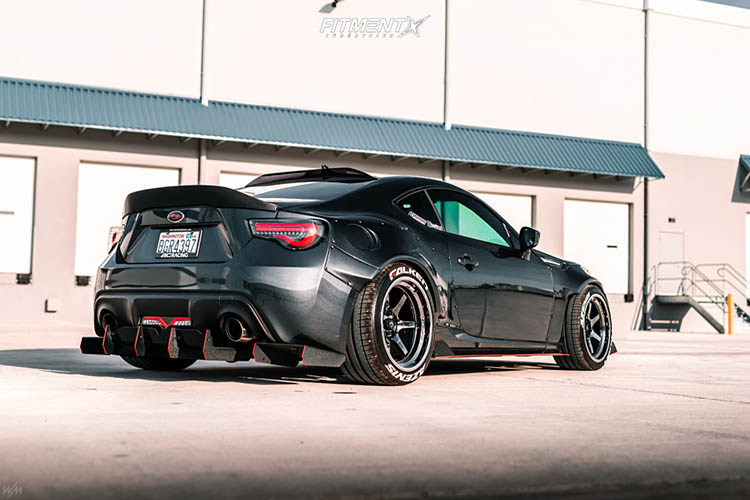
We’ve even managed to fit 4, 235-width tires on the BRZ rear seats, with all the tools in the trunk, which makes it perfect for drift or track days.
Having a 2+2 layout can often help with insurance premiums too, and this is likely to be cheaper compared to the ND for this reason, but it’s still worth shopping around if you’re undecided.
The BRZ also has the upper hand in spare parts, too, since so many are interchangeable with the FR-S/GT86.
Although the ND is somewhat cramped in the interior, it provides superior materials over the BRZ and is less likely to form irritating rattles over time because of this.
However, if you’re over six-feet tall, then the Miata with the roof up isn’t likely to be a place you’ll want to be spending extended durations.
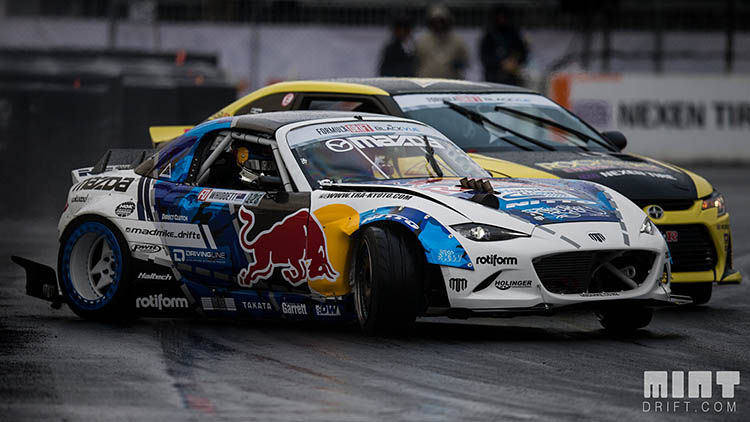
The BRZ also takes the win in terms of visibility. It is far easier to see, and navigate around you, which can be handy if you’re often sharing the car with someone terrible at parking that is likely to destroy your wheels otherwise.
We’re gonna keep things simple here.
Are you looking for top-down enjoyment that’s more likely to provide superior entertainment on the weekend drives in stock form? Miata.
Or are you looking for a car that’s practical to be driven every day (assuming you have small friends to shove in the rear) and a reasonable amount of storage space? BRZ.
If you want the best of both worlds, you could potentially consider getting a BRZ for everyday use and a topless Miata track car for the weekends.
We think it’d be the perfect solution, but unfortunately, your other half most probably won’t agree.
Miata vs BRZ – Drifting
When it comes to drifting, both cars eventually have a lot of potential to offer, but you’ll likely need to go down the forced induction or engine swap route if you’re considering competing.
We’ve seen Mad Mike opt for the ND with a 1,200 hp 4-rotor 26B under the hood, and let’s not forget Kyle Mohan providing the worst fitment we’ve ever witnessed in Formula Drift (Sorry again, Kyle!)
On the other hand, Dai Yoshihara has experienced great success with the BRZ. Not only that, but the BRZ/GT86/FR-S platform has already achieved incredible amounts of success in the drifting scene in a short period.
Ryan Tuerck unleashed the incredible Ferrari-powered GT-4586:
And we’ve also seen numerous builds from the likes of Fredric Aasbo, combined with a vast variety of European builds, even featuring 1,000 hp 2JZ’s.
Given that the Toyota GT86 was built as the legendary AE86’s successor, it’s already gone beyond the insanely high expectations set out from the beginning.
Does the BRZ lack in power in stock form? Perhaps. However, there are plenty of ways to achieve its true power potential, and once you do, it’s arguably one of, if not the, best drift chassis ever created.
Does the Miata have the same potential? We feel that it’d be more of a challenge, perhaps mainly down to the short-wheelbase.
While the BRZ/FR-S/GT86 continues to seal the top spot on podiums worldwide, we’re yet to be blown away by the Miata when it comes to competitions.
If you’re planning a Miata build, be prepared for much more work to be involved if you wish to stand a chance of capturing the top podium spot over the BRZ.
Miata vs BRZ – Track Racing
Both cars are great for those occasional track days, even in stock form, but we feel that one has the edge over the other.
Given the combined weight and lack of power from the BRZ, it can sometimes feel a little sluggish and underwhelming, especially on the longer, higher-speed tracks.
Although the Miata won’t be winning any top speed competitions, the low-down, responsive feel makes it a more exciting drive in factory form. With the addition of coilovers, it’ll handle like it’s on rails.
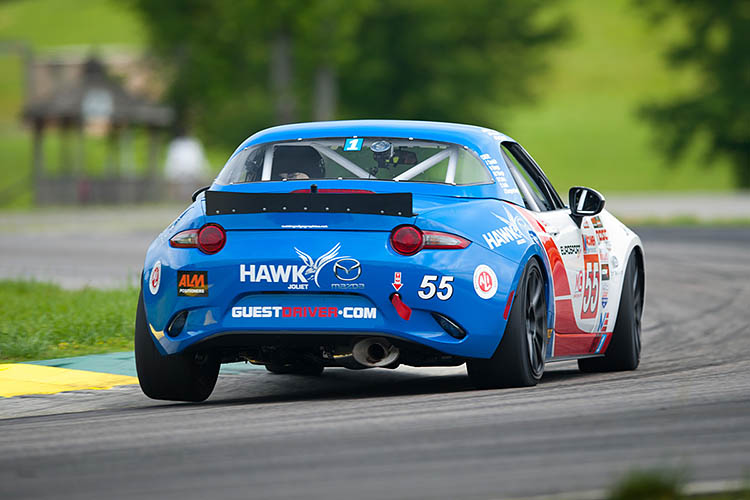
Combine that with the potential for having your roof down as you blast around the track, and there are many reasons that the Miata is the more enjoyable track day car.
The Miata does come with more body roll than the BRZ, but it still feels reassuringly planted in the corners, and if it bothers you, then a coilover upgrade is both convenient and affordable.
Don’t get us wrong, the BRZ still makes for a fantastic car, which is heaps of fun in the twisties despite its weight, but it tends to understeer and doesn’t feel quite engaging or connected when compared to the Miata in stock form.
Larger wheels and tires, coilovers, and sway bars are often the upgrades of choice for many owners to get the most out of the bolt-on BRZ mods, capable of transforming the handling and resolving the understeer issues.
When the cars go head-to-head, it’s almost always an exciting race. When it comes to driver feel, the Miata takes a marginal win – in our opinion, of course!
Conclusion
We can certainly see why so many potential owners considering these cars struggle with deciding between the two.
There are so many positives for both, and at the same time, very few negatives.
Both cars come in at a remarkably similar price bracket, and we would expect to spend around $30-35,000 on either with all the extras.
Thankfully, there are also some real bargains for either vehicle on the used car market.
While the Miata is capable of providing top-down fun, you’re never going to get that unless you opt to take a saw to a BRZ, which we certainly wouldn’t recommend doing!
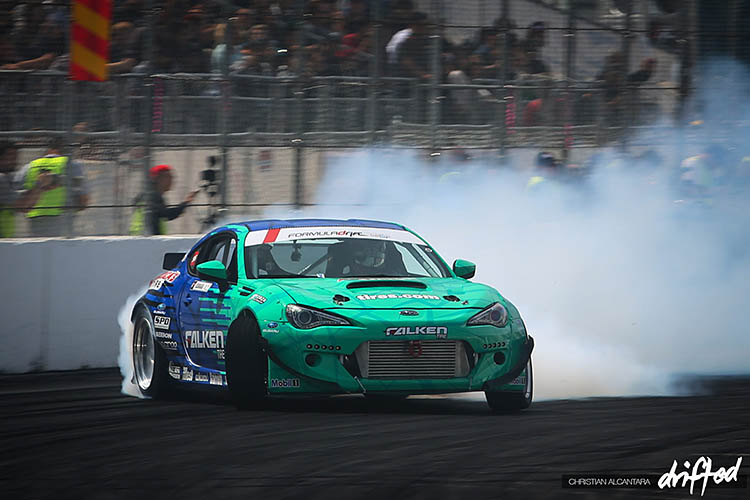
It provides a whole different aspect to driving with the roof down, and the go-kart type feeling makes you feel as though you’re going much faster than you are.
When it comes to the twisties or the track, you’ll be able to load up the BRZ with a full set of spare wheels on the back seats and all your tools in the trunk.
Although the Miata won’t be capable of the space, both cars will undoubtedly be heaps of fun to throw into the corners.
For many, the sheer availability of cargo space and rear seats will be a deal-breaker. The Miata may well benefit from convertible fun, but the BRZ has its advantages with the additional space and seats.
If you’re over six-feet tall, we’d highly recommend test driving a Miata, as it could well be the deciding factor that makes this problematic choice an easy one.
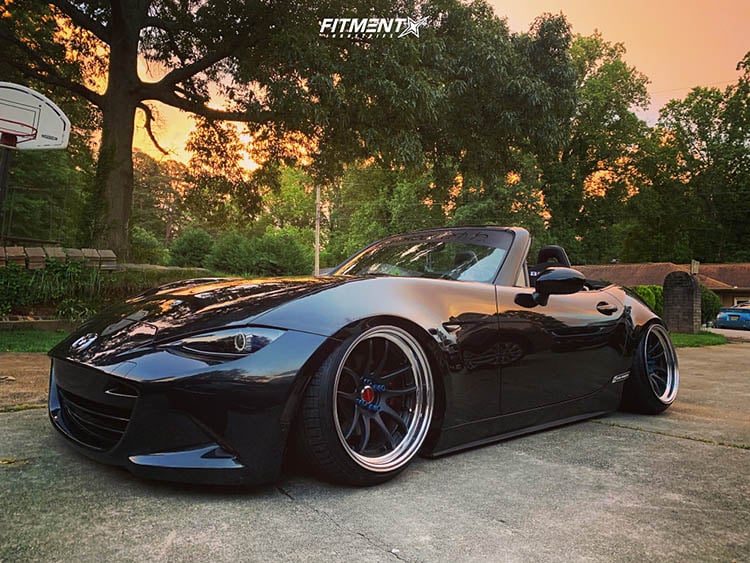
If you’re looking to keep your car in stock form, and you’re happy to keep it as a weekend toy, then Mazda’s Miata is going to be a fantastic choice.
On the other hand, if you’re looking for something practical that can be conveniently driven daily and still provide heaps of fun when you’ve not got the kids at the weekend, the BRZ ticks so many boxes.
If you’ve got the cash and space, then a daily BRZ combined with a reasonably-priced weekend Miata project car could be an incredibly tempting proposition.
However, if you plan to create the ultimate drift build, then we’d undoubtedly be looking at the Subaru BRZ.
So, there we have it! We hope that we’ve covered everything you could want to know about the Mazda Miata and Subaru BRZ in this guide.
Thank you for reading our Miata vs BRZ guide.
If you enjoyed this article, please share it with the buttons at the bottom of your screen. If you’ve found this information useful, then please take a moment to share it with other Miata, BRZ, GT86/FR-S, and other motoring enthusiasts. We appreciate your support.
Photography credits
We thank the following entities for the use of their photography in this article:



